Is midlife crisis a mental illness
ALL IN Therapy Clinic- What is a Midlife Crisis? Am I in a Mid-life Crisis?
Learn more about how midlife crises affect millions of people. With better insight, you can be equipped to better address your own major midlife crisis.
Table of Contents
(Click on a question below to be directed quickly)
What is a mid-life crisis?
Does everyone go through a midlife crisis?
Is a midlife crisis a mental illness?
What are the signs of a mid-life crisis?
What happens during a midlife crisis?
What years does a mid-life crisis happen in?
Do midlife crisis’ differ for men and women?
Does midlife crisis lead to divorce?
How do you fix a midlife crisis?
How do you survive your partners midlife crisis?
Does therapy help a midlife crisis?
Is a midlife crisis a myth?
What is a mid-life crisis?
The definition for term midlife crisis can vary from person to person. An article in Psychological Reports defines a mid-life crisis as a state of physical and psychological distress that are the result of developmental tasks/stage overwhelming a person’s resources.
Developmental tasks/stage can be thought of as an age appropriate event, like learning to speak is a developmental stage for toddlers. For middle age it could be thought of as significant life moments/transition, such as a significant birthday (the big 4-0), a child leaving for college, or the death of a parent.
While this term is popular in the media, researchers in Gerontology state that the more specific definitions researchers have used do not support the idea of a midlife crisis, and that a more broad definition may be more helpful to explore. Interestingly, the term “midlife crisis” was coined by Canadian psychoanalyst Elliot Jaques.
Does everyone go through a midlife crisis?
Good news, a mid-life crisis is not a something that everyone will experience.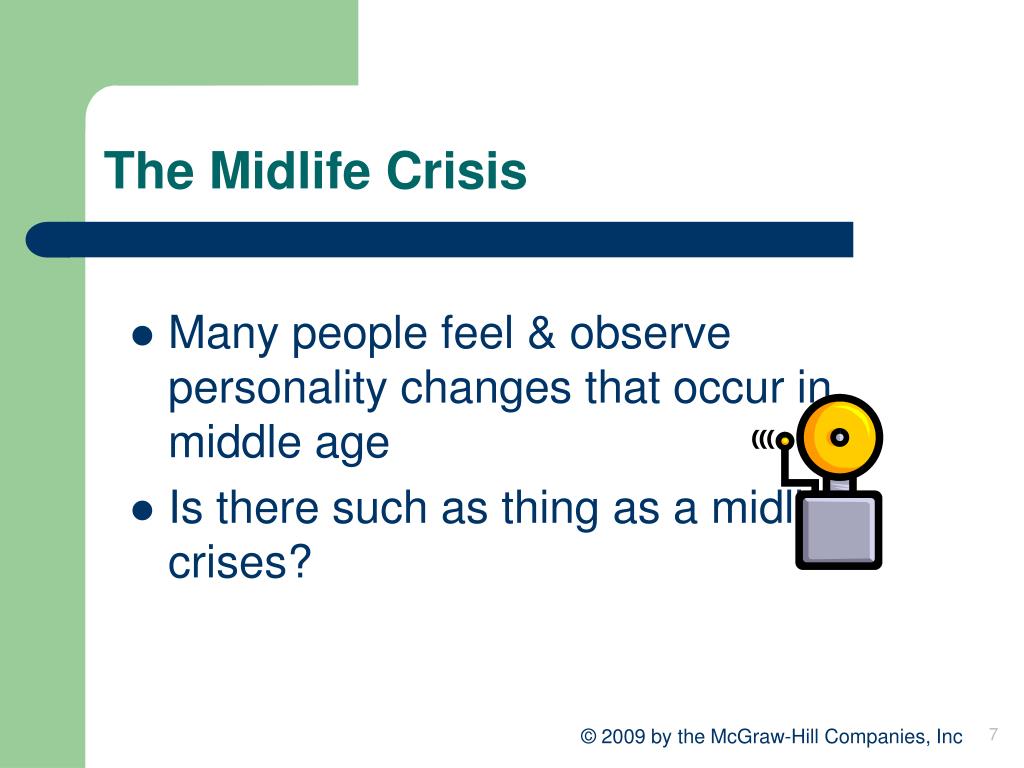
In fact, an article in Motivation and Emotion states that only 10% of American men may experience a midlife crisis. Meaning that a mid-life crisis is not a universal experience.
Another consideration is culture and how what we are taught to expect. Someone from a culture that does not believe in midlife crisis’ would be less likely to experience one.
Is a midlife crisis a mental illness?
No, a mid-life crisis is not considered to be a mental illness. This means that it does not appear in the Diagnostic and Statistical Manual of Mental Disorders (DSM-5).
The closest diagnosis for this type of distress would be an Adjustment Disorder. Mayo Clinic outlines the key components of Adjustment Disorder, the key ones are listed below:
- #1 Having emotional or behavioral symptoms within three months of a specific stressor occurring in your life.
- #2 Experiencing more stress than would normally be expected in response to a stressful life event and/or having stress that causes significant problems in your relationships, at work or at school
It is also important to note that not all social scientists believe that midlife crisis is a distinct phenomena, and it is unclear if it is a distinct mental health issue.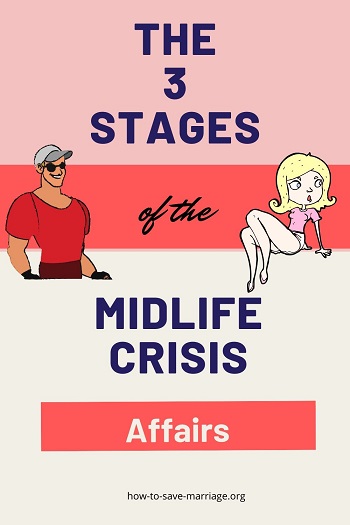
What are the signs of a mid-life crisis?
Another way to think about a mid-life crisis outside of mental illness is to think of it as an emotional crisis. The American Psychological Association reports that symptoms of an emotional crisis can include:
- Neglect of personal hygiene
- Dramatic changes in sleep habits
- Weight loss or gain
- Pronounced changes in mood, such as increased anger, irritability, sadness, or anxiety.
- Withdrawal from usual routine or relationships
If you or someone you know is experiencing these symptoms or the symptoms associated with Adjustment Disorder (see above), it may be helpful to think about reaching out for help from friends/family or a therapist.
What happens during a midlife crisis?
A midlife crisis is usually thought of as someone experiencing emotional distress during middle age.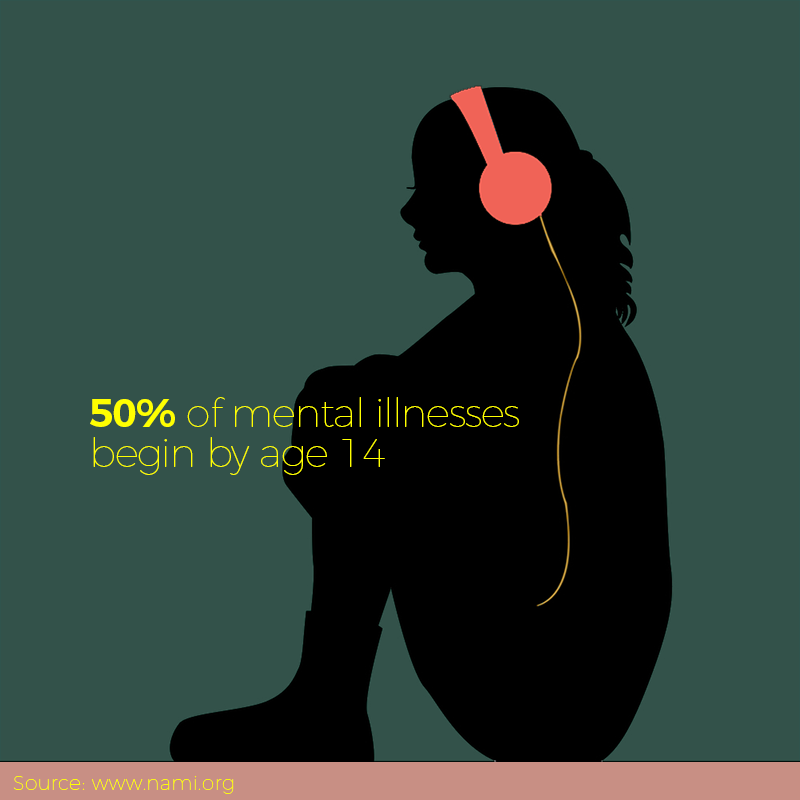
A review in Gerontology on midlife crisis’ reports on how researchers consider midlife to be a time people are vulnerable to experiencing an emotional crisis because it can be a time that prompts reflection. Have I achieved what I wanted? Does my life look how I thought it would?
It may be that some of the behaviors we associate with a mid-life crisis- switching careers, buying a sports car- are the result of as assessment of something not being where someone wanted at their stage of life.
What years does a mid-life crisis happen in?
An article in Motivation and Emotion says that a mid-life crisis can happy any time in your mid-30’s to your mid-50’s. But don’t forget, not everyone will experience a mid-life crisis and there is always some stress associated with transitions, even if they are normal.
Age 40 is a common time where people begin a midlife crisis, due to the major life significance of moving from one’s thirties into forties.
Do midlife crisis’ differ for men and women?
Midlife crises are more often associated with men. An article in Gerontology highlighted that some researchers believe men are less self-reflective, making them more prone to a midlife crisis.
It is thought that because men are not reflecting on the state of their relationships and goals, moments of transition/change may be more challenging. An article in Psychological Reports states that one theory for why women are less likely to experience a midlife crisis is that midlife may be a more “liberating” time for them.
If they have children, the kids are older and so society is more accepting of them working and achieving. However, it is important to remember that anyone can experience an emotional crisis during middle age.
Does midlife crisis lead to divorce?
Based on how Gerontology defined a midlife crisis, it is possible that someone could have a moment of reflection and notice that they were not happy in their relationship/marriage.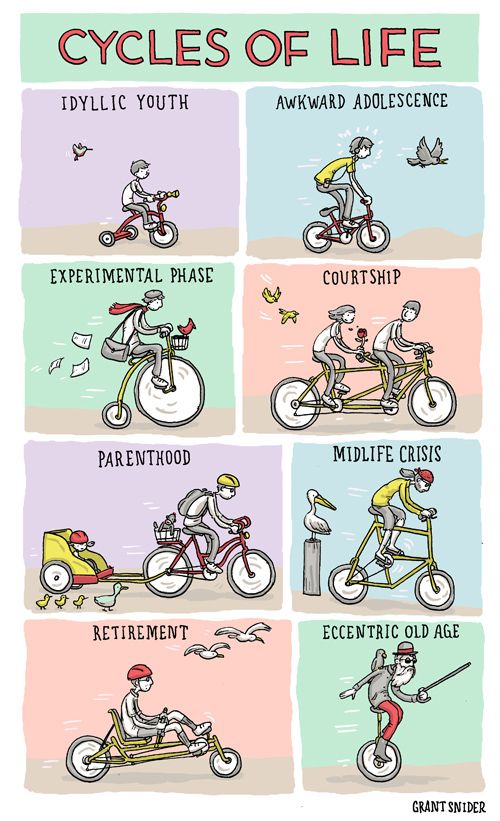 In this instance, a midlife crisis might prompt a divorce.
In this instance, a midlife crisis might prompt a divorce.
However, an article in Motivation and Emotion found that participants felt the midlife crisis was a result of divorce. Their findings stated that a person who was divorced or separated in the past 5 years was 6.5 times more likely to report a midlife crisis than someone who was not recently divorced or separated.
Based on these findings it seems like a midlife crisis is more likely to result from experiencing divorce.
If at any point in time in your life you notice that you are less happy with your relationship/marriage, or had hoped your relationship/marriage would look differently than it currently does, it is a good time to think about seeking out help.
If you are not interested in couples counseling, you can explore a retreat or workshops, or even online tools/apps.
How do you fix a midlife crisis?
As we have discussed, a midlife crisis is having a significant emotional distress during midlife due to developmental tasks or transitions.
A midlife crisis is very fixable. For some people the support of family, friends, or religious leaders may be sufficient to help them through that tough spot. For others, seeking out professional help from a therapist may be the route to go.
An article in the Journal of Clinical Psychology shows that professional treatment helps address the symptoms of the diagnosis of Adjustment Disorder.
How do you survive your partners midlife crisis?
If you partner is going through a midlife crisis or any crisis, one thing you can do is ask them what they need. This is a simple way of showing support and connecting with them. It may also be helpful to remind yourself that they are going through something, which may help you to take their moods or words less personally.
This time might also be a great time to focus on yourself and your own growth. While we cannot force others to change, we can focus on our own growth.
Going to therapy on your own, reading, or whatever else helps facilitate your own personal growth may help yourself.
Does therapy help a midlife crisis?
Yes! Therapy is effective at treating Adjustment Disorder, which is the mental health diagnosis that is the most like a midlife crisis. If you or someone you know is experiencing significant distress around a recent life stage change or other transition seeking out therapy may be a helpful option.
If you or a family member are going through a midlife crisis and want support, please consider talking to an individual therapist. If you believe your midlife crisis is causing depression, remorse, or other feelings of grief, make an appointment anytime.
Is a Midlife Crisis a myth?
Some argue that it is a myth. In order for something to be a distinct event, like a Midlife Crisis, it should have characteristics that differentiate it from other types of events.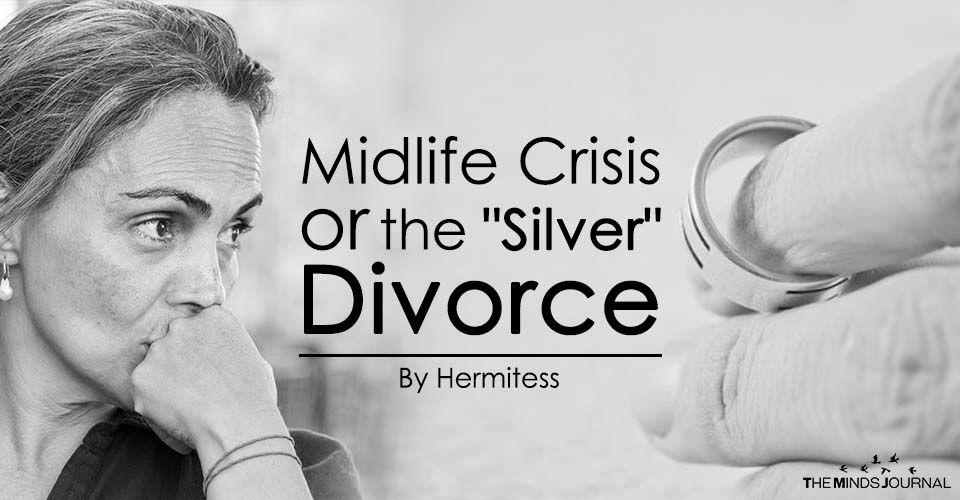 Many mental health researchers question the validity of a Midlife crisis as a unique and distinct experience, different that other stressful phases in life.
Many mental health researchers question the validity of a Midlife crisis as a unique and distinct experience, different that other stressful phases in life.
Instead, many mental health experts say that a midlife crisis is a pop-psychology term that has confused more people that it has helped.
In order for something to be a Midlife Crisis, it should be experienced solely in mid-life. However, many report experiencing the symptoms of a midlife crisis at nearly every age. This calls into question the salience of one’s mid-life on the cause (or contributing factor) of their crisis.
Also, some question the accuracy of giving this event, if it does exist, the title of a “crisis”. One researcher instead suggests that people face “turning points” during this phase (and other phases) of life. Viewing it as a turning point in life, instead of a crisis, may be both more accurate and helpful.
Lastly, some research indicates that it is common across the lifespan that people’s overall happiness and satisfaction is lowest in middle-ages; that satisfaction levels follow a “U Shape” across life.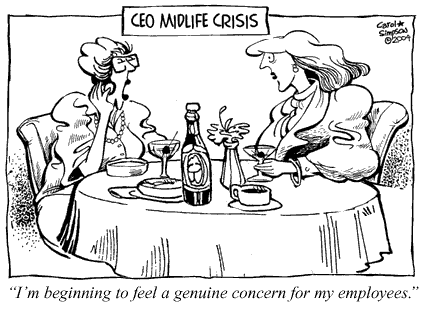 Thus, a “Midlife Crisis” may not be a distinct, acute event but a natural and predictable outcome of a life pattern.
Thus, a “Midlife Crisis” may not be a distinct, acute event but a natural and predictable outcome of a life pattern.
Ultimately, it is hard to prove it does or does not exist as a distinct experience.
References:
American Psychological Association. (2013). How to help in an emotional crisis. American Psychological Association. https://www.apa.org/topics/help-emotional-crisis. Retrieved on November 28, 2020.
Blanchflower, D. G., & Oswald, A. J. (2008). Is well-being U-shaped over the life cycle?. Social science & medicine, 66(8), 1733-1749.
Freund, A. M., & Ritter, J. O. (2009). Midlife crisis: A debate. Gerontology, 55(5), 582-591.
Kramer, U., Despland, J. N., Michel, L., Drapeau, M., & de Roten, Y. (2010). Change in defense mechanisms and coping over the course of short‐term dynamic psychotherapy for adjustment disorder. Journal of Clinical Psychology, 66(12), 1232-1241.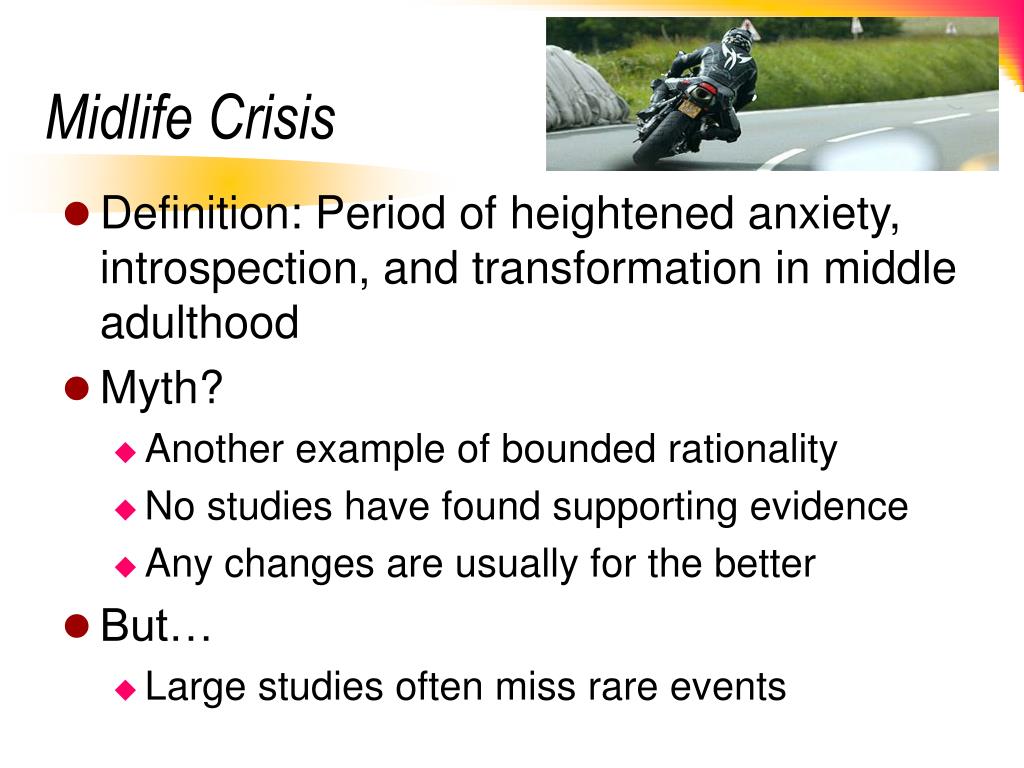
Kruger, A. (1994). The midlife transition: crisis or chimera?. Psychological reports, 75(3), 1299-1305.
Mayo Clinic Staff. (2017, Oct). Adjustment Disorder. Mayo Clinic. https://www.mayoclinic.org/diseases-conditions/adjustment-disorders/diagnosis-treatment/drc-20355230. Retrieved on November 28, 2020.
Wethington, E. (2000). Expecting stress: Americans and the “midlife crisis”. Motivation and Emotion, 24(2), 85-103.
Disclaimer: ALL IN Therapy Clinic aims to improve people’s lives through providing effective mental health counseling by passionate professionals. We publish quality material for your own education. Our publications are researched, cited, reviewed, and edited by licensed mental health professionals. The information we provide is not intended to be a substitute for professional medical advice, diagnosis or treatment. It should not be used in place of the advice of a qualified healthcare provider.
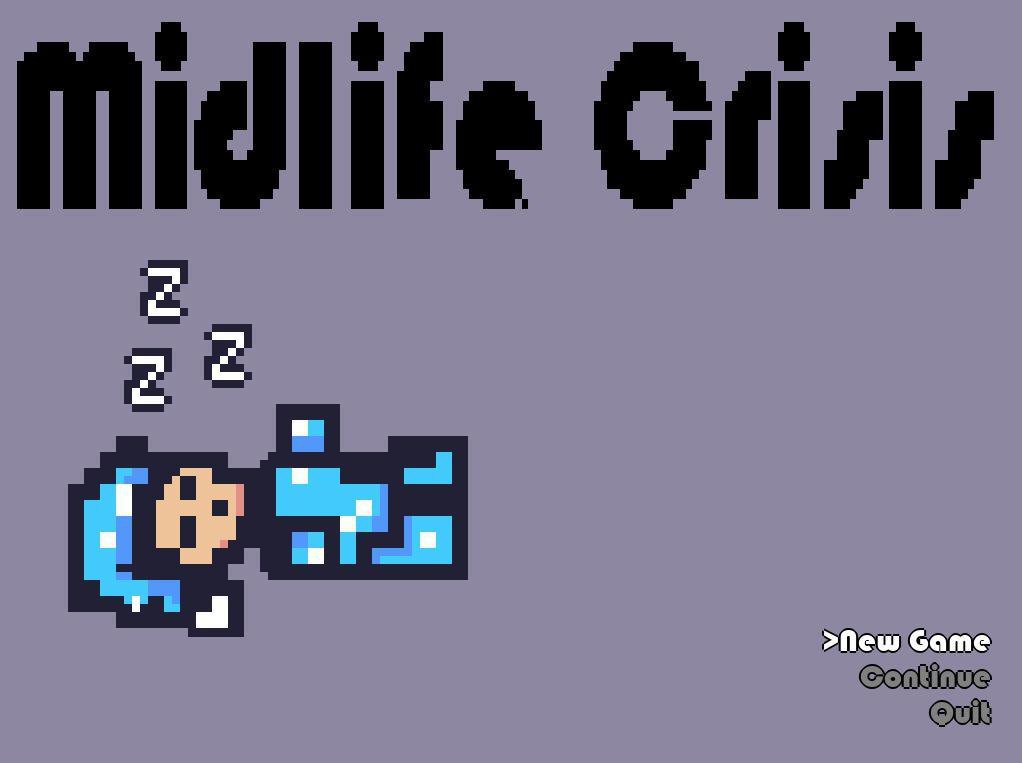
Filed under: Mental Health Resources by All in therapy Clinic
Signs You Are Experiencing Depression vs. A Midlife Crisis
The Symptoms of a Midlife Crisis in Men
Men may also experience the loss of their sex drive, erectile dysfunction, decreased levels of testosterone and feelings of sadness. Sadness in a midlife crisis tends to be much less intense in comparison to full-blown depressive disorders.
Note that people show great individual differences in their symptoms. Some may show only one or two characteristics, while others may experience all of them.
In contrast with a midlife crisis, symptoms of midlife depression include:
- Changes in sleep habits, either insomnia or sleeping too much
- Changes in appetite
- Intense, often debilitating feelings of sadness
- Feelings of guilt and worthlessness
- Lack of interest or enjoyment in previously fun activities (anhedonia)
- Changes in body weight (unplanned loss or gain)
- Loss of interest in sex
- Withdrawal from social interactions
- Elevated levels of anxiety, fear and worry
- Irritability and anger (typically in men)
- Tearfulness, uncontrollable emotions (most often in women)
- Thoughts of death or self-harm
- Aches and pains without an identifiable cause, including muscle pain, digestive problems, and headaches
Midlife Crisis and Depression in Women
Depression is a significant concern in midlife.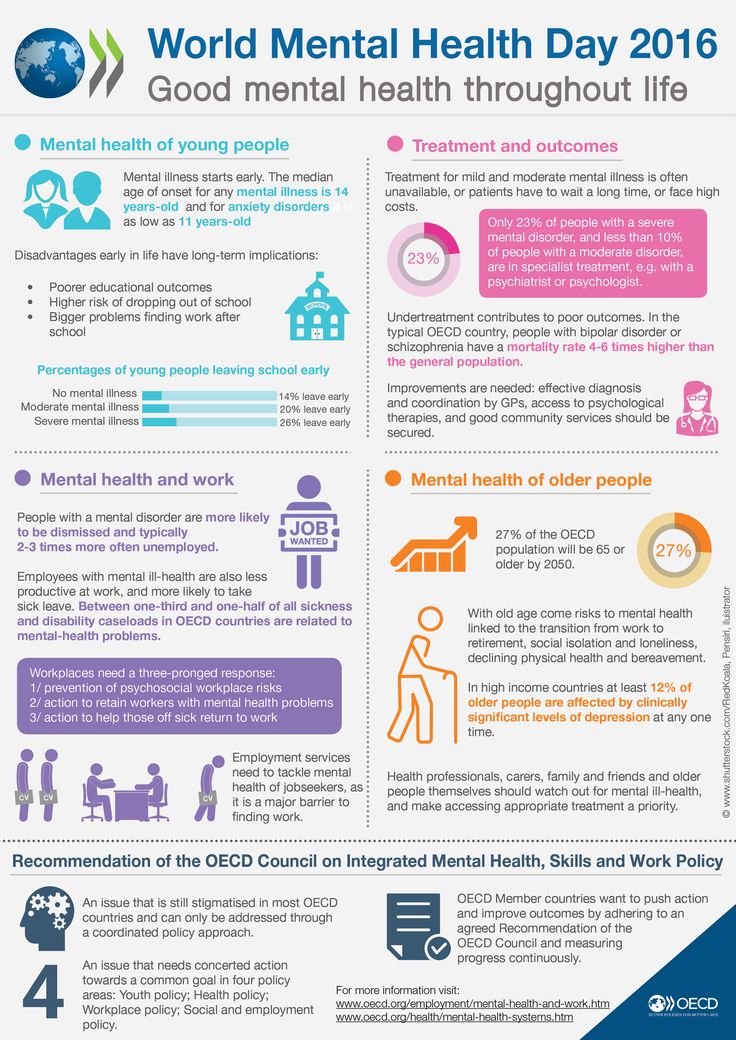 When looking at gender and age, women from age 40 to 60 have some of the highest rates of depression.
When looking at gender and age, women from age 40 to 60 have some of the highest rates of depression.
Depression in middle-aged women is made more complex due to menopause. Menopause during midlife crises naturally makes the situation worse. Female depression at age 50 or above can be perimenopausal depression. Perimenopausal depression is a type of depression unique to women and is in part aggravated by fluctuating levels of estrogen. Painful or abnormal menstrual cycles, hot flashes, and intense, abrupt mood swings are often symptoms of depression that middle-aged women endure.
Women in midlife crises suffer many of the same symptoms as men; however, women tend to experience less anger and irritability and more tearfulness. At the same time women usually have midlife crises, they are also in the approximate age range for menopause, which has a big impact on their midlife experiences.
Depression versus a Midlife Crisis
Major depression isn’t linked to a particular age or period in a person’s life. It is a disease that can strike anyone, regardless of their feelings of satisfaction or contentment with their lives. Although midlife depression can be aggravated by external situations, it’s a disorder of the nervous system, particularly the way in which the nerves and tissues of the brain communicate with each other, coupled with the challenges brought about by a person’s unique environment.
It is a disease that can strike anyone, regardless of their feelings of satisfaction or contentment with their lives. Although midlife depression can be aggravated by external situations, it’s a disorder of the nervous system, particularly the way in which the nerves and tissues of the brain communicate with each other, coupled with the challenges brought about by a person’s unique environment.
Depression also has nothing to do with goal-directed behavior; that is, a person cannot become depressed by trying to or wanting to. Likewise, they cannot move past a depressive episode by force of will. A midlife crisis without co-occurring depression involves impetuous, rash and impulsive behavior that originates from a person’s desire to recapture lost youth or to make radical life changes without careful consideration.
A midlife crisis involves a person’s questioning of their identity as they leave young adulthood behind. Successfully resolving a midlife crisis means making peace with one’s life as it has been and either continuing on or making changes to get more satisfaction out of life.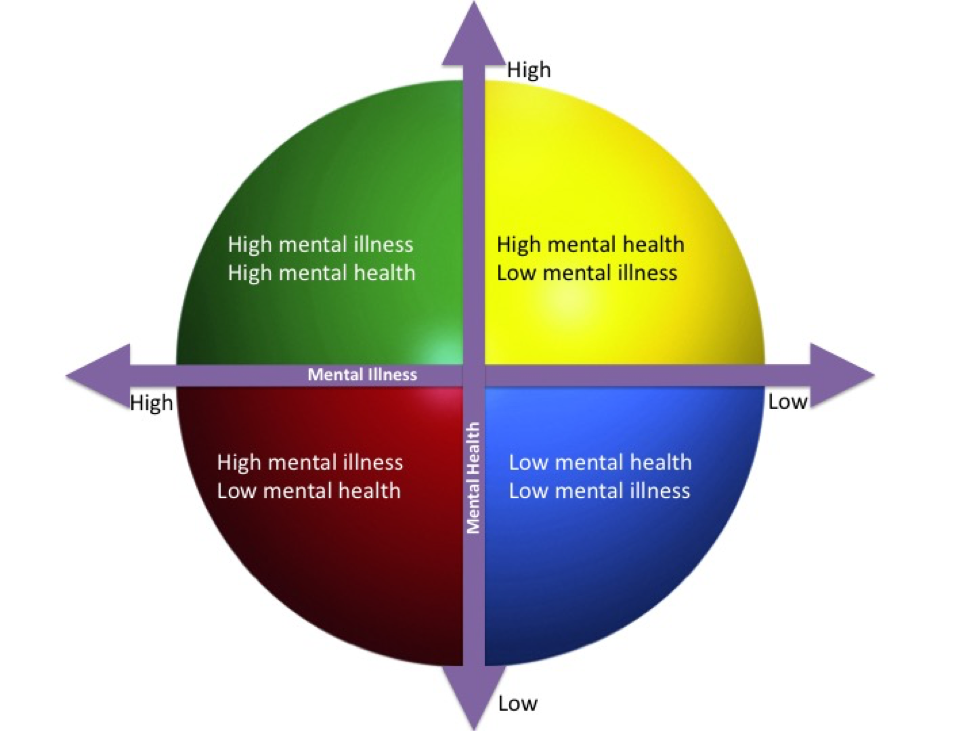
Midlife Crisis and Depression in Middle-Aged Men
Not only are men at elevated risk for depression in midlife, they’re at an increased risk of suicide. According to the Centers for Disease Control, white men between 45 and 54 have the highest rates of suicide in the nation. The symptoms of depression in middle-aged men are similar to those in women except men tend to become irritable, angry and may act out with some aggression.
How To Deal With Midlife Crisis Symptoms
Coping with a midlife crisis is challenging because a person’s feelings are screaming at them that something is wrong and must be corrected immediately. It’s the sense of urgency, the feeling that time is running out that drives people to make poor, even disastrous decisions. It’s important to slow down.
- Make no hasty decisions. Making a change for the sake of having done something isn’t a good plan. The bigger the decision, the more thought needs to be given to it.
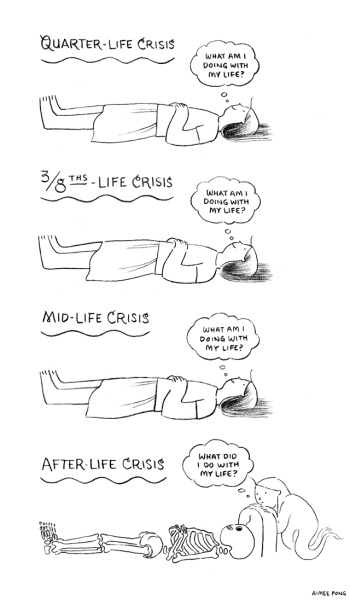
- Talk to someone. Men and women in a midlife crisis often feel lonely and isolated. Find someone to open up to, and if you don’t have anyone you trust, see a professional mental health expert.
- Touch base with reality. Remember that your emotions are not necessarily grounded in reality. Emotions themselves are real, but they may be based on an incorrect interpretation of things. Get some objective input into your situation.
- Be kind. Be kind to yourself and others. If you’ve given thought to dissolving or changing a big relationship and decided after reflection you want to do that, proceed with kindness. If you’re quitting your job to go back to school, consider the proper way to break the news to family and loved ones. No matter what you decide, remember that you’re always part of a tapestry of connections.
TMS Therapy: Treating Depression With No Side Effects
If you’re seeking treatment for depression and you’re concerned about the many side effects of antidepressants, consider Transcranial Magnetic Stimulation (TMS) therapy. This is an FDA cleared non-invasive treatment for multiple mental health disorders. TMS therapy uses targeted magnetic pulses to stimulate areas of the brain that affect mood, which helps you get back to your best life quickly and with no side effects. Among the many depression treatment options out there, TMS therapy is an excellent, pain-free solution that is covered by most major insurance companies. The best part is there are no side effects from TMS therapy, making it an excellent solution for those who fear the side effects of medications.
This is an FDA cleared non-invasive treatment for multiple mental health disorders. TMS therapy uses targeted magnetic pulses to stimulate areas of the brain that affect mood, which helps you get back to your best life quickly and with no side effects. Among the many depression treatment options out there, TMS therapy is an excellent, pain-free solution that is covered by most major insurance companies. The best part is there are no side effects from TMS therapy, making it an excellent solution for those who fear the side effects of medications.
This blog post is meant to be educational in nature and does not replace the advice of a medical professional. See full disclaimer.
Midlife crisis: how to recognize and survive
Enroll
September 06, 2021 read 10-12 minutes
After thirty, according to statistics, a midlife crisis threatens almost every second. Together with a psychologist, we figure out how to identify the symptoms of this emotional state, as well as help to survive it - to ourselves and others.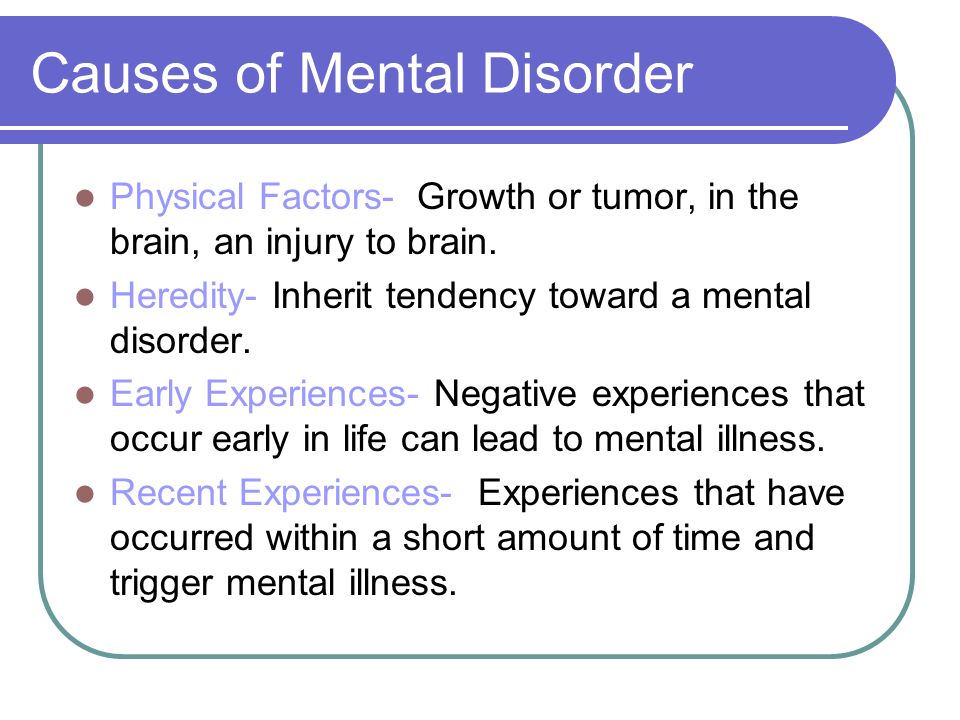
Many fans of the series "Friends" remember the series in which the main characters are experiencing a 30-year milestone. Each of the characters in the American sitcom showed the most expected reaction to a midlife crisis: Joe experienced a panic, Monica drowned her despair in wine, Phoebe summed up her years, and Rachel experienced depression, broke off relationships and began to make plans for the future. And, of course, Ross bought a red sports car. But does everyone experience a midlife crisis, and what is the average age? Is it worth it to repeat the usual scenarios and clichés? And, most importantly, how to deal with it?
What is midlife crisis
A midlife crisis is an emotional state that a person experiences at the age of 30-50, most often it is associated with a reassessment of life experience. It seems that many opportunities and dreams of youth have been missed, while old age (or death) will come pretty soon. For different people, the crisis occurs at different ages, it depends on individual characteristics.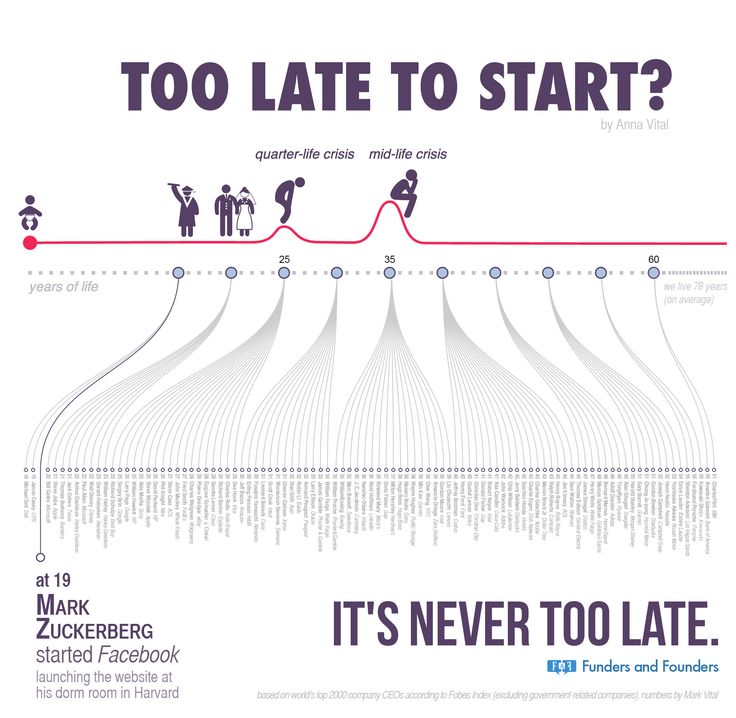
Crisis is often defined as a period of emotional upheaval and associated with a thirst for change. At the moment of his experience, people try to fight thoughts of old age. Many may forego duties in favor of entertainment. That's why the term "midlife crisis" is often associated with buying a sports car or starting a new relationship. But middle age is also a time of reassessment, summing up and self-determination, psychologists say.
Aging causes anxiety and depression in a person. And the midlife crisis is the phase that makes you feel young again because you don't want to put up with the fact that life is half over. However, the emotional upheavals that people experience at this age do not always lead to major lifestyle changes associated with the desire to stay forever young.
The term was originally applied only to men. He explained the fear of death that they experienced during this period. Today, the definition covers the physical, psychological, social problems faced by both men and women.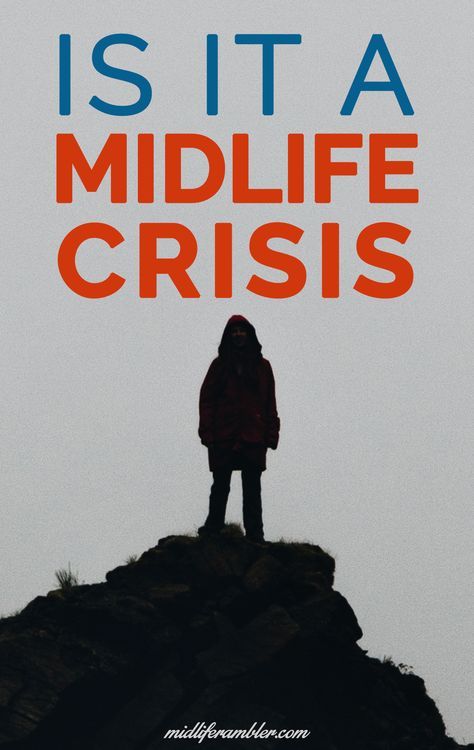 At the same time, many do not associate the midlife crisis with aging. So, in one of the surveys, men talked about problems at work or in the family, and women - with health and personal relationships.
At the same time, many do not associate the midlife crisis with aging. So, in one of the surveys, men talked about problems at work or in the family, and women - with health and personal relationships.
Causes of midlife crisis
For many, middle age is a time when relationships and social roles change. Some people begin to care for their aging parents, others feel lonely because adult children began to live separately . For others, this period becomes a time of regrets about missed opportunities.
Middle age can also be a time of deep reflection. People look back on the years they have lived and wonder what their life would have been like if they had taken a different path. Some begin to regret that they did not choose another career or did not accomplish what they once dreamed of. Others recall happier days of their youth.
Fall of happiness
One theory why some people go through a midlife crisis is that they experience a decline in happiness. Research shows that the feeling of happiness can be depicted as a U-shape. Where a gradual decline in happiness levels begins in late adolescence and continues until age 40. Happiness begins to grow again at 50. This hypothesis was confirmed by the data of half a million Americans and Europeans. During the survey, people in their 60s reported that they had never been so happy in their lives. While forty-year-olds felt very miserable. However, the U-curve is not an axiom at all.
Research shows that the feeling of happiness can be depicted as a U-shape. Where a gradual decline in happiness levels begins in late adolescence and continues until age 40. Happiness begins to grow again at 50. This hypothesis was confirmed by the data of half a million Americans and Europeans. During the survey, people in their 60s reported that they had never been so happy in their lives. While forty-year-olds felt very miserable. However, the U-curve is not an axiom at all.
You can read the continuation of the article at the link to RBC Style.
Psychologist Psychotherapist
RBC source
Related Articles
Coping with Anxiety During the Pandemic
Over the past two covid years, we have mastered different ways of escaping reality. Some are harmless, others lead to rehab. Tatler figured out how not to miss the right turn.
When is it harmful to dream?
Text provided incomplete. You can read the entire article on FORM - SBER EAPTEKI's blog. Some people are immersed in the artificial world. One American psychotherapist gave this a name - "obsessive dreams." Here's what's important to know about them.
Read article
What if the child has gained a lot of weight?
Text not provided in full. You can read the entire article on FORM - SBER EAPTEKI's blog. We tell you how to understand that a child is overweight, which doctors can help and how to be parents.
Read article
The whole truth about adaptogens
Text not fully provided. You can read the entire article on FORM - SBER EAPTEKI's blog. Stress, fatigue, emotional instability and restless sleep are common human companions.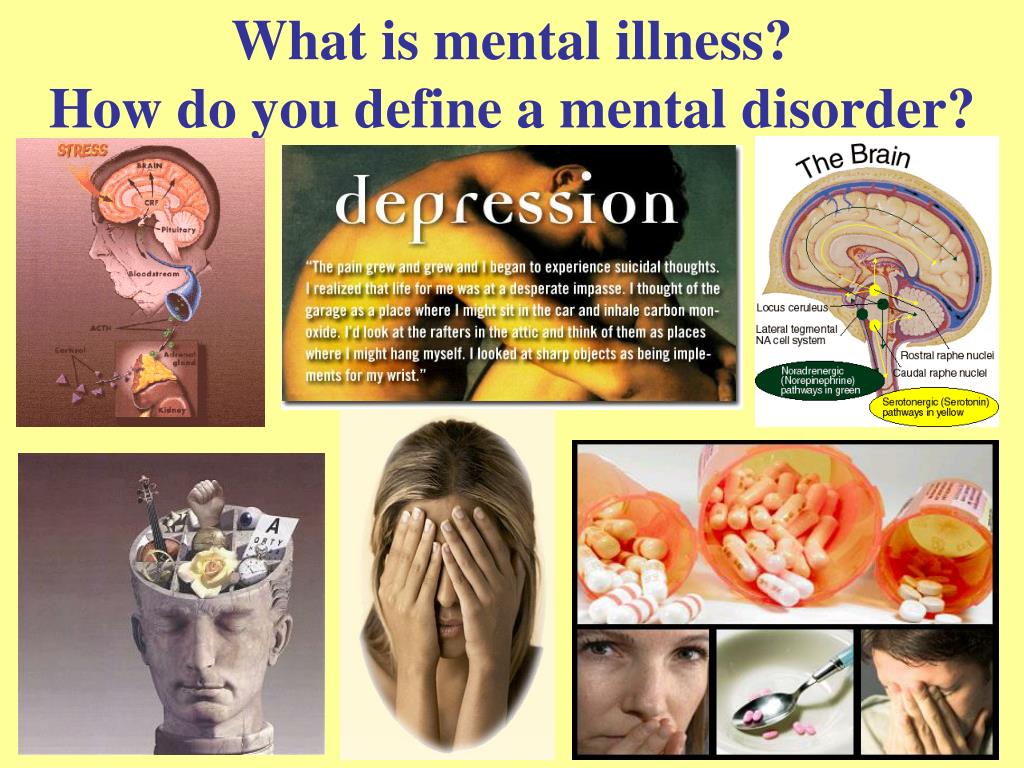 Often the gaze in this case falls on adaptogens. We understand what it is, whether they are effective and whether they can be replaced.
Often the gaze in this case falls on adaptogens. We understand what it is, whether they are effective and whether they can be replaced.
Neurologist Meshcheryakova named serious diseases that can be cured with Botox to get rid of wrinkles. But that's not the case at all.
Read article
Junk collecting and 7 more early signs of memory and thinking decline
Every year, 10 million people in the world are diagnosed with cognitive impairment, which can then develop into dementia. Most often - in Alzheimer's disease, for which there is no cure. How not to miss the moment when everything is just beginning?
Read articleOther articles by this author
What to do if a person is ill: a tactic that will save life
A passer-by has become ill. Or he fell and hit hard. Or suffocate. Few people know how to act in such a situation. In order to make it easier to superhero, we talked to a large number of experts and compiled a first aid guide for people in any incomprehensible situation.
Or he fell and hit hard. Or suffocate. Few people know how to act in such a situation. In order to make it easier to superhero, we talked to a large number of experts and compiled a first aid guide for people in any incomprehensible situation.
Infertility and psychology
Speaking about infertility within the framework of the psychosomatic approach, we cannot ignore the topic of mistrust.
Read article
Postpartum depression. How to get rid?
When we talk about depression, we mean a mental illness that only a psychiatrist can diagnose. A psychologist can only suspect depression and refer the patient to a psychiatrist for examination.
Read article
Procrastination: why we procrastinate and what to do about it
Text not fully provided. You can read the entire article on RBC Style. Most of us have put things off at least once by doing anything but them. We tell you why this happens, how dangerous it is and how to deal with procrastination.
You can read the entire article on RBC Style. Most of us have put things off at least once by doing anything but them. We tell you why this happens, how dangerous it is and how to deal with procrastination.
If you suffer from dental phobia
How do you prepare yourself for a visit to the dentist?
Read article
Psychosomatic infertility
The main cause of psychosomatic infertility is fear. There are a lot of fears and very different ones.
Read articleWhat is a midlife crisis and how to overcome it
Many fans of the TV series "Friends" remember the series in which the main characters are going through a 30-year milestone. Each of the characters in the American sitcom showed the most expected reaction to a midlife crisis: Joe experienced a panic, Monica drowned her despair in wine, Phoebe summed up her years, and Rachel experienced depression, broke off relationships and began to make plans for the future. And, of course, Ross bought a red sports car. But does everyone experience a midlife crisis, and what is the average age? Is it worth repeating the usual scenarios and clichés? And, most importantly, how to deal with it?
And, of course, Ross bought a red sports car. But does everyone experience a midlife crisis, and what is the average age? Is it worth repeating the usual scenarios and clichés? And, most importantly, how to deal with it?
- What is a midlife crisis
- Causes
- When the Crisis Comes
- Symptoms and signs
- Male midlife crisis
- Women's midlife crisis
- How to Survive
- How to help those in crisis
The article was checked and commented by Elena Fiveyskaya, psychologist, GMS Clinic coach
Advertising on RBC www.adv.rbc.ru
What is a midlife crisis
A midlife crisis is an emotional state that a person experiences at the age of 30-50, most often it is associated with a reassessment of life experience. It seems that many opportunities and dreams of youth are missed, while old age (or death) will come pretty soon. For different people, the crisis occurs at different ages, it depends on individual characteristics.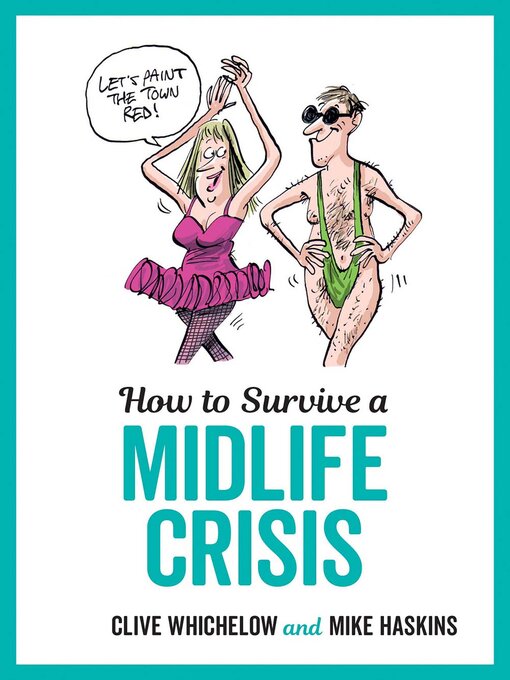
Crisis is often defined as a period of emotional upheaval and associated with a thirst for change. At the time of his experience, people try to fight the thoughts of old age. Many may forego responsibilities in favor of entertainment. That's why the term "midlife crisis" is often associated with buying a sports car or starting a new relationship. But middle age is also a time of reappraisal, debriefing, and self-determination, psychologists say.
Middle age is a time of reassessment, reflection and self-determination
© Shutterstock
Aging makes a person anxious and depressed. And a midlife crisis is a phase that helps you feel young again, because you don't want to put up with the fact that life is half over [1]. However, the emotional upheavals that people experience at this age do not always lead to major lifestyle changes associated with the desire to stay forever young.
The term was originally applied only to men. He explained the fear of death that they experienced during this period.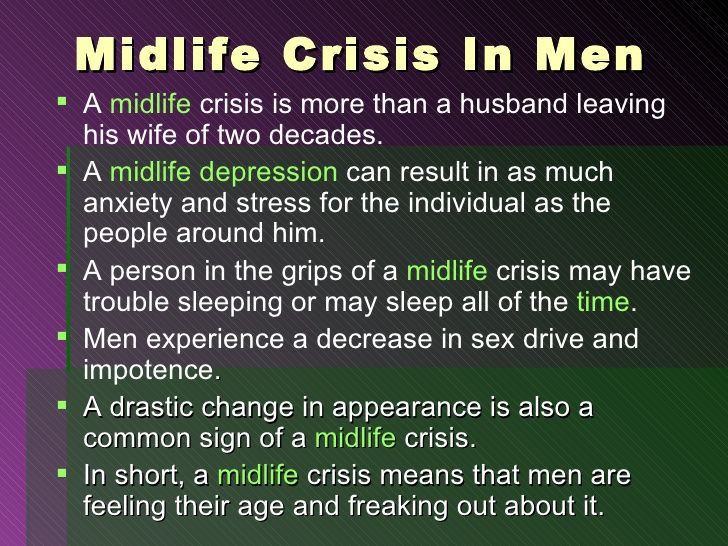 Today, the definition covers the physical, psychological, social problems faced by both men and women. However, many do not associate the midlife crisis with aging. So, in one of the surveys, men talked about problems at work or in the family, and women - with health and personal relationships.
Today, the definition covers the physical, psychological, social problems faced by both men and women. However, many do not associate the midlife crisis with aging. So, in one of the surveys, men talked about problems at work or in the family, and women - with health and personal relationships.
Causes of midlife crisis
For many, middle age is a time when relationships and social roles change. Some people begin to care for aging parents, others feel lonely because adult children began to live separately . For others, this period becomes a time of regrets about missed opportunities [2].
Middle age can also be a time of deep reflection. People look back on the years they have lived and wonder what their life would have been like if they had taken a different path. Some begin to regret that they did not choose another career or did not accomplish what they once dreamed of. Others recall happier days of their youth.
Decline in happiness
One theory why some people experience a midlife crisis is that they experience a decline in happiness.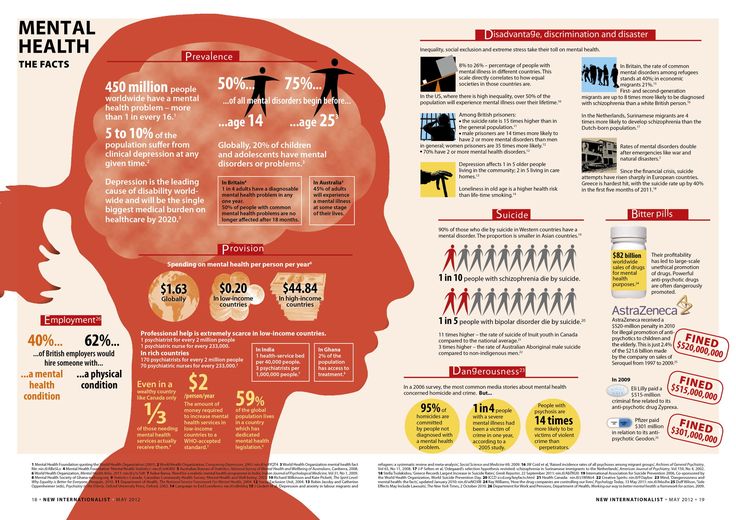 Research shows that the feeling of happiness can be depicted as a U-shape. Where a gradual decline in happiness levels begins in late adolescence and continues until the age of 40. Happiness begins to grow again at 50 [3]. This hypothesis was confirmed by the data of half a million Americans and Europeans. During the survey, people in their 60s reported that they had never been so happy in their lives. While forty-year-olds felt very miserable. However, the U-shaped curve is not an axiom at all.
Research shows that the feeling of happiness can be depicted as a U-shape. Where a gradual decline in happiness levels begins in late adolescence and continues until the age of 40. Happiness begins to grow again at 50 [3]. This hypothesis was confirmed by the data of half a million Americans and Europeans. During the survey, people in their 60s reported that they had never been so happy in their lives. While forty-year-olds felt very miserable. However, the U-shaped curve is not an axiom at all.
When does a crisis occur?
According to research, not everyone experiences a midlife crisis. Some scholars believe that the concept of crisis is a social construct. It is the belief that some kind of crisis must occur at 40 that makes people think that they are experiencing disappointment and breakdown.
People feel lonely when their grown-up children start living separately
© Yan Krukov/Pexels
The US National Midlife Survey found that approximately 26% of participants experience a midlife crisis [4]. At the same time, the majority of respondents reported that it occurred in the period before 40 or after 50 years. These data cast doubt on the axiom that such an emotional state is directly related to age, since the average is usually considered to be 45 years. In addition, the vast majority of respondents said that the crisis was caused by a serious event in life, and not by age. These include divorce, loss of a job, loss of a loved one, or relocation.
At the same time, the majority of respondents reported that it occurred in the period before 40 or after 50 years. These data cast doubt on the axiom that such an emotional state is directly related to age, since the average is usually considered to be 45 years. In addition, the vast majority of respondents said that the crisis was caused by a serious event in life, and not by age. These include divorce, loss of a job, loss of a loved one, or relocation.
Today, the age range of the midlife crisis has expanded, as men and women under the age of 30 and over 50 can experience it. And its onset is often due to personal characteristics and significant events in life.
Symptoms of a midlife crisis
Psychotherapist Elena Elfimova in her book "Crisis of Personal Relationships" describes in detail the symptoms of a midlife crisis. Here's what you need to pay attention to:
- there was a need to improve physical fitness and appearance;
- there was a desire to actively move: running, cycling, dancing, extreme sports: racing, skydiving;
- made drastic changes in the diet or went on a diet, started taking vitamins or dietary supplements;
- buy new clothes and spend more time on appearance;
- change your hairstyle, color your hair due to natural changes in color, thickness and quantity;
- drastically change your social circle, which is replenished by younger people;
- feel dissatisfied with your own achievements;
- compare yourself with other people of your age who have achieved more;
- what used to bring pleasure is boring; there was a desire to quit a successful career;
- experience irritability, sudden fits of anger;
- you get tired faster, there are problems with memory, new diseases, the consequences of bad habits have accumulated;
- the need for sleep has changed: you want to sleep more or, conversely, less;
- became more prone to stress;
- like listening to other music, suddenly want to learn how to play a musical instrument;
- have a sudden interest in painting or writing;
- awakened interest in religion or philosophy;
- think about death more often, talk about its nature;
- trying to give new life to things that you bought 20 years ago;
- often remember your childhood;
- think about the future.

Midlife crisis in men
Men most often associate the crisis with life values and the search for oneself. At the same time, the search can imply both a change in profession, changes in family life, and cardinal changes in lifestyle. At this point, men often look back on their past years, question their achievements and begin to look for themselves in something else.
Men most often associate the crisis with life values and the search for oneself
© Andrea Piacquadio/Pexels
Signs of aging also play an important role: as a rule, health and physical abilities begin to deteriorate in middle age. Thoughts that you can be happier if you change something can cause men to have an emotional crisis and an acute desire for speedy change.
A midlife crisis usually involves changing lives in a hurry, says Calvin Colarusso, MD, professor of psychiatry at the University of California, San Diego [5]. As an example, he cites the case of his patient who wrote a note to his wife, withdrew money from a bank account and moved to another city without warning. But, according to Colarusso, this type of crisis is rare, more often men go through it less impulsively.
But, according to Colarusso, this type of crisis is rare, more often men go through it less impulsively.
Signs of a midlife crisis in men:
- You are over 40 years old. Colarusso most often sees men struggle with a midlife crisis in their 40s and 50s.
- You are concerned about the main areas of your life. This may include dissatisfaction with career, marriage, health, as well as a desire to change them for the better.
- You feel that there is little time to choose a new direction.
According to a psychologist, many men are in dire need of change when:
- appearance and physical form change;
- grandchildren appear;
- parents or friends die.
Ph.D. and psychologist from Boston, Lynn Margolis, believes that at this stage, men can experience "teenage rebellion." “A sure sign of a midlife crisis is that you feel trapped and strongly tempted to change your life,” she says. Attempts may include:
- addiction to alcohol;
- novel on the side;
- leaving the family, breaking up a long-term relationship;
- desire to add thrills.

Midlife crisis can lead to both growth and destruction of personality. If you look for the causes of your unhappiness, and then make thoughtful decisions to eliminate them, this is growth, says the psychologist. And making impulsive decisions, such as walking away from a familiar life, having a relationship with a younger partner that ends quickly, or buying a car that is too expensive, leads to destruction.
A sure sign of a midlife crisis: you feel trapped and strongly tempted to make a radical change in your life
© Shutterstock
The psychologist encourages you to remember that feelings and impulsive impulses are not commands to act. After all, the desire to run away from home, work or family does not mean that it really needs to be done. These feelings may indicate problems that need to be addressed. In addition, over time, they may disappear altogether. Men make many successful changes in their 40s and older: get an education, travel, start their own business.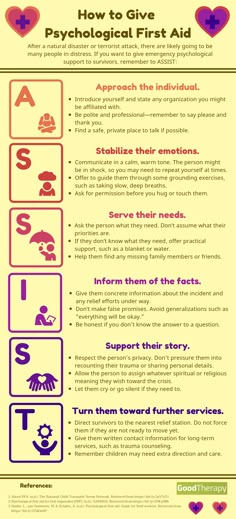 It is important to make sure that the new goals are practical and accessible.
It is important to make sure that the new goals are practical and accessible.
Midlife crisis in women
Contrary to popular belief, the crisis affects not only men. Recent studies have shown that a similar emotional state is also characteristic of women from 40 to 65 years old [6]. During this period, they face not only physiological changes, but also problems at work, in family relationships, and in achieving financial and personal goals. The stress can be so intense that women may experience sleep disturbances and health problems[7][8].
To avoid backlash, a midlife crisis is best viewed as an opportunity to reevaluate your life, a chance to pause and spend time and energy figuring out what's important to you, says Dr. Susan Albers, PhD in Psychology.
Hormonal changes are the main difference in these situations, notes the psychologist. As women enter menopause, estrogen and progesterone levels decrease and cause physiological changes, including disturbances in sleep, mood, and sex drive [9].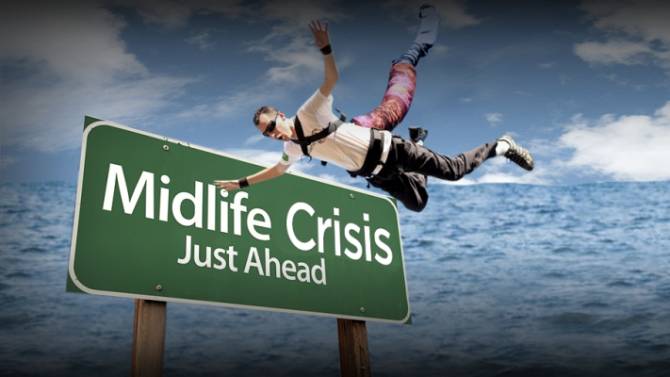 During perimenopause and menopause, hormone imbalances can also cause memory loss, anxiety, weight gain, and decreased interest in things you used to enjoy, according to Mayo Clinic doctors [10].
During perimenopause and menopause, hormone imbalances can also cause memory loss, anxiety, weight gain, and decreased interest in things you used to enjoy, according to Mayo Clinic doctors [10].
Signs and symptoms of a midlife crisis in women:
- depression and anxiety;
- lack of motivation or desire to devote time to certain activities;
- dissatisfaction with career and other life choices.
Emerging experiences can direct women's attention inward. And since they are more likely to care about the feelings and needs of others, such self-reflection can provoke an emotional crisis. In the role of mother, women may be more visible in society or have a strong bond with their children, psychologists say. But one day the children grow up and stop needing them. And when women do not devote all their attention to the family, they have time to think about their experiences.
Stress can be so intense that women may experience sleep disturbances and health problems
© Cottonbro/Pexels
How to Survive a Midlife Crisis
1.
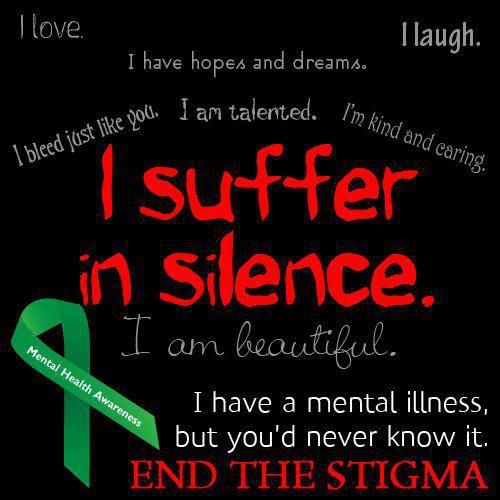 Embrace the Change
Embrace the Change Not only gray hair and wrinkles show age, but also fatigue. Therefore, the question of how to feel younger is increasingly being asked by psychologists and psychotherapists. Try not to attribute changes in appearance to age. They are also caused by unfavorable ecology, hard work and stress.
Maintain mental activity: enthusiasm and a positive inner attitude are good for appearance.
2. Take care of yourself
Look for ways to reduce stress, whether it's asking loved ones to share your experience or using stress management techniques such as meditation or mindful breathing. Take care of yourself, eat a healthy diet and get enough sleep.
3. Take care of your health
Talk to your doctor or gynecologist to help you understand what is normal in your condition and what is depression or anxiety. Consulting a therapist can also help you cope with negative emotions.
4. Train your brain
Age also manifests itself in increased fatigue and forgetfulness.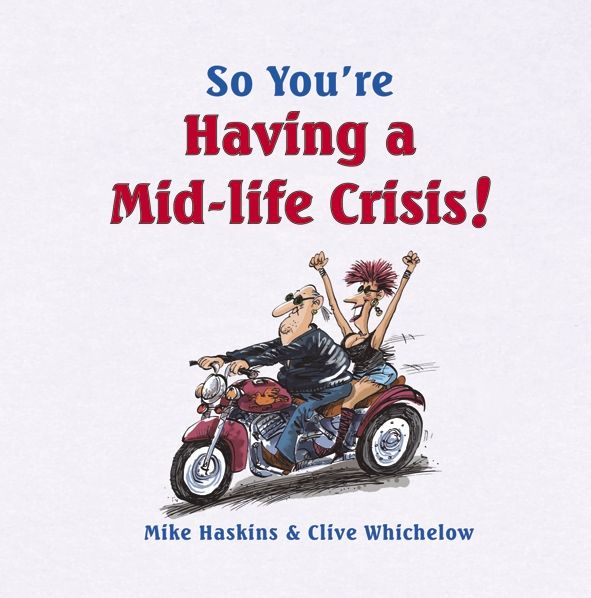 Over time, the brain loses the ability to adapt to new situations. Try to diversify the usual course of life: change the route to work, give up the car, walk more often and arrange interesting events with family and friends. Stop using the calculator and start training your brain with mental counting. You can also give up diaries and entries in your mobile phone: try to remember phone numbers, memorable dates and a to-do list.
Over time, the brain loses the ability to adapt to new situations. Try to diversify the usual course of life: change the route to work, give up the car, walk more often and arrange interesting events with family and friends. Stop using the calculator and start training your brain with mental counting. You can also give up diaries and entries in your mobile phone: try to remember phone numbers, memorable dates and a to-do list.
5. Get new emotions
Traveling is one of the common tips of psychologists. Sometimes a week spent in an unknown city or country can give more impressions than a whole year of measured life.
Look for ways to reduce stress
© Marcus Aurelius/Pexels
But going to the ends of the earth in search of new experiences is not an option for everyone, given the current pandemic. Previously unknown tastes and smells will help to get emotions and create neural connections. Try new dishes or buy an unusual perfume. In addition, you can diversify your leisure time with new hobbies.
6. Be grateful
Take time to be grateful for the parts of your life that make you happy, psychologists advise. Try keeping a journal and write down what you are grateful for. Go back to your notes to see what you can change in your life.
7. Discuss your emotional state
Find accomplices. It is important to know that you are not the only one experiencing a crisis. Talking to others about how you feel is supportive. Those who have already gone through this state can share useful ideas and tips. Also, before making important decisions, discuss them with someone you trust. A friend or psychologist may have a different opinion about the correctness of your choice.
8. Do a self-evaluation
Try to understand what is important to you, what you spend time and energy on. Find out what takes energy instead of filling it. This process may involve restructuring relationships, getting rid of toxic people, finding new friends or hobbies. Let go of guilt and don't get discouraged by introspection.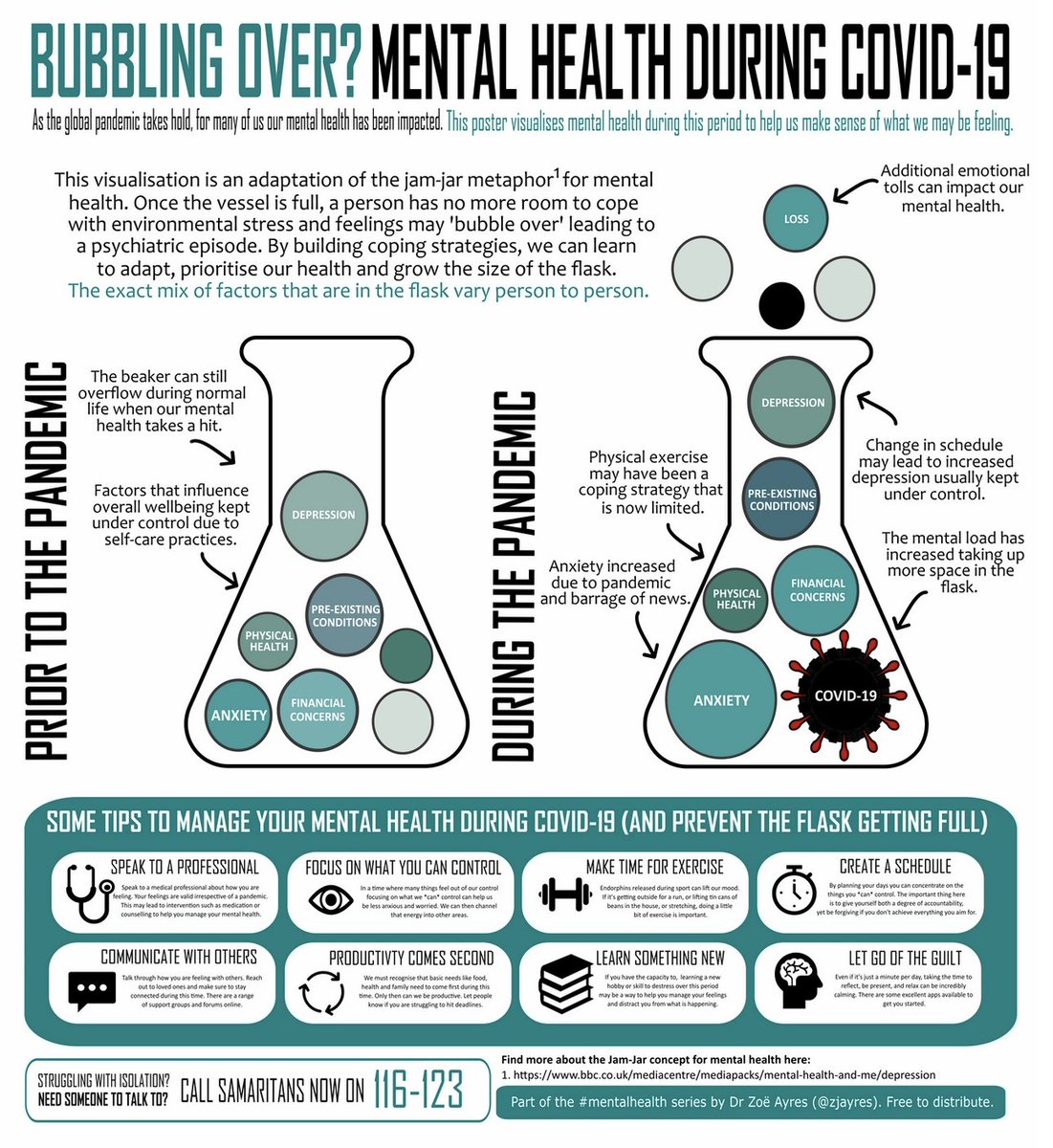 Realize that this is a necessity and allow yourself to explore the important questions of life.
Realize that this is a necessity and allow yourself to explore the important questions of life.
When to ask for help
Sometimes going through a midlife crisis doesn't require professional help. Perhaps, in order to feel that life has been filled with meaning, a new hobby is enough. But this emotional state can affect well-being. A midlife crisis should be treated like any other emotional crisis. If you are experiencing unpleasant symptoms that worsen your condition, it is best to seek help from professionals.
Psychologist's consultation will help to cope with negative emotions
© Shutterstock
Here are a few times when you should consult a doctor or see a psychologist:
- emotional stress interferes with sleep or affects appetite;
- cannot concentrate on work;
- stress or mood affects relationships with loved ones;
- lost interest in entertainment and hobbies;
- are thinking about major life changes: ending a long-term relationship, changing careers, or moving.
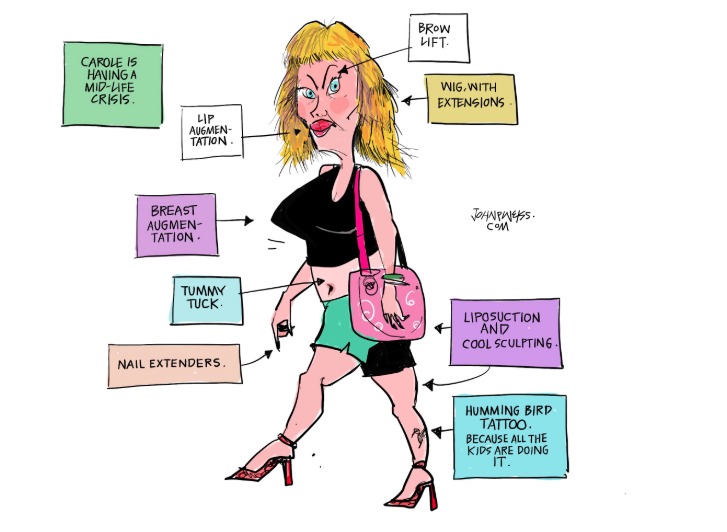 At the same time, the desire to make changes is born from the internal upheavals associated with age.
At the same time, the desire to make changes is born from the internal upheavals associated with age.
How to help those who are in crisis
Experiences during this period can be quite strong. So much so that it becomes difficult to endure them not only for a person, but also for his family, friends, colleagues. At this moment, people begin to splash out their emotions and aggression, or, conversely, to withdraw into themselves.
If you suspect a friend or family member is having a midlife crisis, you can help them.
- Become a good listener for your loved ones, let the person talk about their experiences. Try to listen without judgment and refrain from giving advice. Let a friend share how they feel and let them know that you are there.
- Express your concern, concern more often. At the same time, it is better to avoid exclamations from the series: “It seems that you are having a midlife crisis ?!” Instead, try asking probing questions like, “You haven't looked like yourself lately.
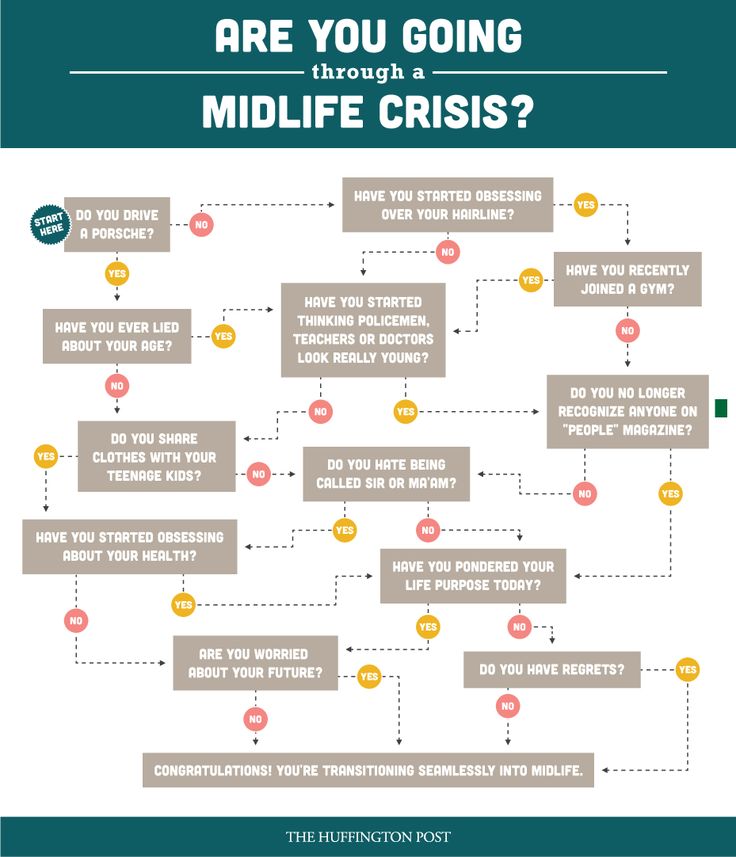 Are you all right?"
Are you all right?" - If needed, talk to your loved one about the importance of getting professional help. Suggest talking to a psychologist or doctor. Keep in mind that the changes you see in a person may indicate health problems. For example, a thyroid disorder often causes mood swings. The specialist will help to rule out medical problems and determine if a psychologist is needed.
- When someone close to you refuses to seek help from a specialist, you can consult a psychologist yourself. A therapist can help you develop a plan to support the other person and set healthy mental boundaries.
- Get help right away if you notice that a loved one could harm themselves or others. If necessary, take him to the emergency room for examination. If a person refuses to go to the hospital, call an ambulance and do not leave him unattended.
Psychologist's comment
Elena Fiveyskaya, psychologist, GMS Clinic coach
What is the difference between midlife crisis in women and men?
Any age crisis is a turning point, a transitional moment that has its own stages and patterns of development.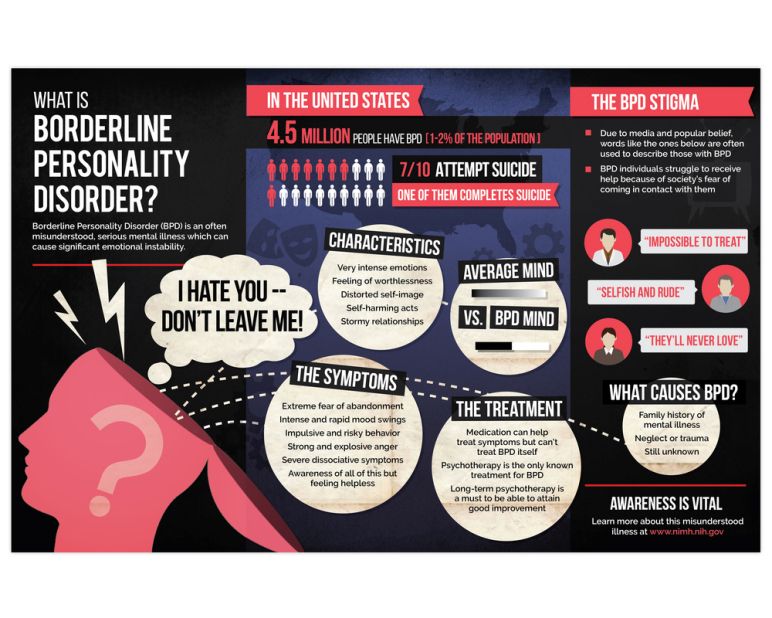 In this midlife crisis in men and women is the same.
In this midlife crisis in men and women is the same.
First of all, both of them will definitely have it: it will affect almost everyone. Secondly, it is directly related to its name - namely, it comes in the middle of life (median). This means that both a man and a woman will begin to compare their expectations from life with what has been achieved, can still be achieved, and with what has been lost forever.
But there are differences. The first is the age difference. If we do not take into account the tails of the distribution (for example, genes that allow a woman under 40 to look 20), then a woman begins to observe the first heralds of age-related changes by the age of 30.
If a woman has not yet given birth, then thoughts about the mythical biological clock sometimes fly into her head, becoming more insistent. Men have fewer such restrictions, at 30 they, for the most part, firmly believe that everything is still ahead.
The second difference is the goal that a woman and a man want to achieve.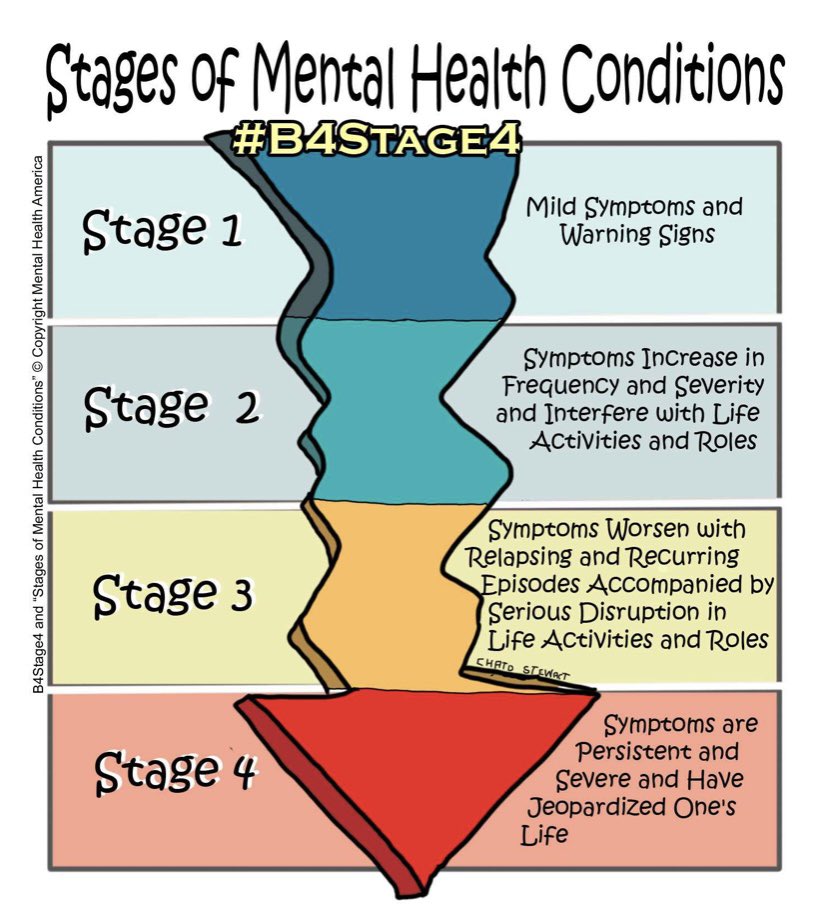 There is an opinion that it is more important for a woman to realize herself in a family, and for a man - in a career. But, in my opinion, this stereotype is outdated, and many men today dream of a child, and women put their career first.
There is an opinion that it is more important for a woman to realize herself in a family, and for a man - in a career. But, in my opinion, this stereotype is outdated, and many men today dream of a child, and women put their career first.
The third factor involved in the reassessment of one's abilities in middle age is related to the sexual sphere. These are menopause in women and erection problems in men. And here again we can note the difference in age limits (as well as with procreation).
But the main difference that I want to point out as a psychologist is what avoidance strategies (instead of accepting current changes) are used by men and women in the midst of a midlife crisis.
In men, trying to regain youth by committing reckless acts is the most common behavior. As they say, gray hair in the head is a demon in the ribs. They are trying to emotionally return to the pre-crisis state.
A woman, on the other hand, makes attempts to do it bodily: she decides on braces, plastic surgeries, rejuvenation procedures - all this is a multi-million dollar business that is based on the midlife crisis of the beautiful half of humanity.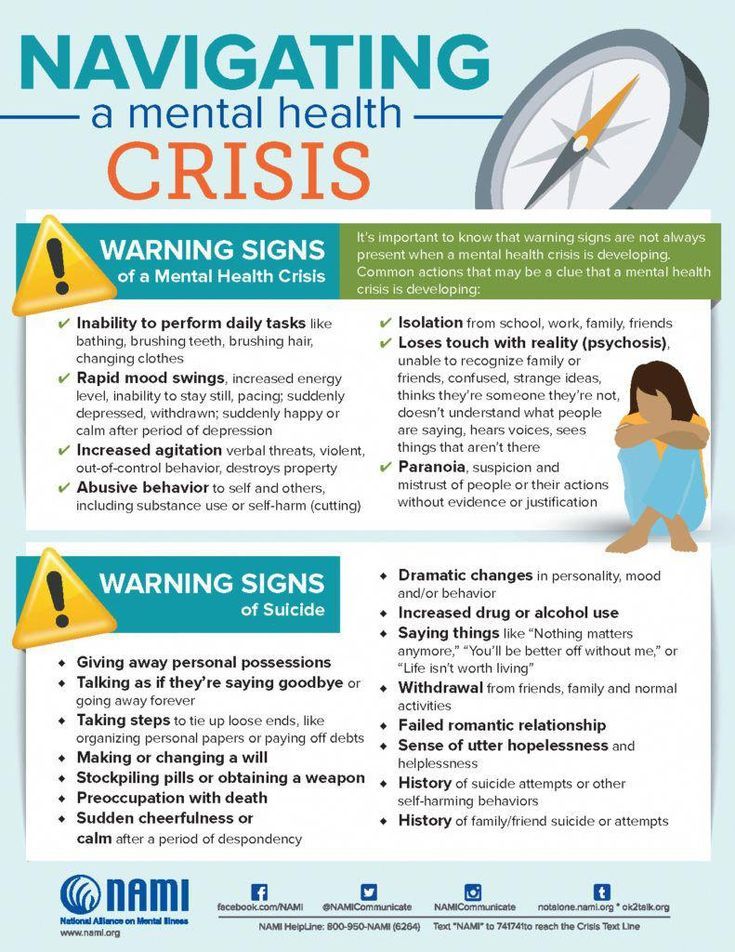
Once again, I want to emphasize that the differences between men and women are changing these days. A woman can run to buy a new Porsche, a yacht, or get a lover younger than herself, just as a man can maniacally improve his appearance.
Women do not lose the ability to receive the same vivid emotions as in their youth. In men, the emotional sphere fades, everything becomes boring, and life becomes like a “Groundhog Day”. Therefore, often men look for emotions in a new marriage, re-participate in the birth of children, experiencing this process in a different way, more consciously, as it seems to them.
A woman is more masochistic by nature, it is easier for her to devote herself to something else: a man, a child, projects. Because of her nature and ability to be a mother. Without the masochistic part, the stage of childbirth and postpartum care for the baby seems rather difficult. Therefore, this is inherent in a woman.
How long can a midlife crisis last?
Long enough if the person does not advance to the next level.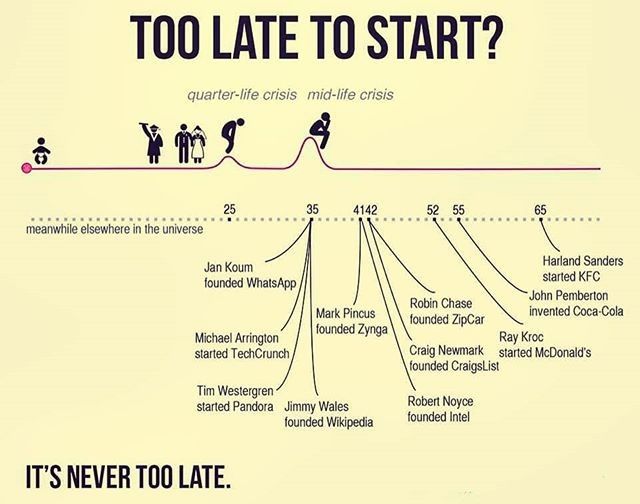 In especially severe cases, such a crisis can break a person.
In especially severe cases, such a crisis can break a person.
Perhaps you have come across or even among relatives there are elderly people who are stuck in the past, have lost the meaning of life and do not expect anything more from this world. Usually they say about them: “She was never able to start a family, he never recovered from losing his job, etc.” Missed opportunities remained in the past, and the person did not set new goals for himself.
But there are also opposite cases, when a crisis pushes a person to his destiny, to what he always wanted to do, but for some reason did not do it.
Is there a complex treatment, crisis therapy?
The main therapy is a visit to a psychologist. A crisis is not a disease, but a transition from one phase of development to the next. If in adulthood there are difficulties in accepting some new circumstances, this is work with the psyche and defenses. A psychologist will help you understand what is stopping you and how to deal with it. In some cases, you will have to burn yourself out, in others - to change the strategy, and thirdly - to set new goals.
In some cases, you will have to burn yourself out, in others - to change the strategy, and thirdly - to set new goals.
How to help yourself with signs of a crisis?
It is extremely difficult to get out of the crisis on your own. I already wrote about the defenses of the psyche, which will not allow us to move on if we have not closed some specific goals, desires, our “wants”. There will be attempts again and again to get what you want, even if it is impossible. It also depends on the actual achievements of a person in comparison with his expectations. In this case, perfectionists will have a particularly hard time.
The only thing I would like to advise is not to compare yourself with others, everyone has been given a different amount of resources (both external and internal). So, even a successful businessman will be a loser compared to a person on the first line of Forbes. Another recommendation is to explore new areas, opportunities, everything new as much as possible, because the old is either unattainable, or has already been achieved and interest is lost.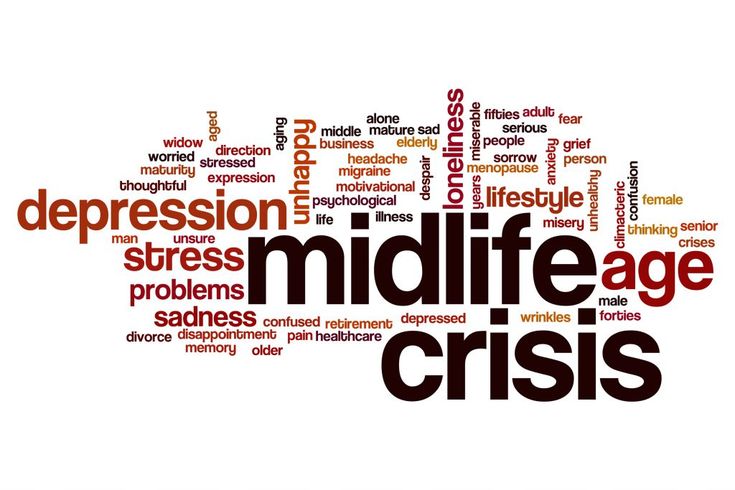
How can loved ones help those who are in crisis?
Everything is very individual and depends not only on the personality of loved ones and the one who is going through a crisis, but also on the specifics of the relationships that have developed between them. If even before the crisis the relationship was not trusting, and the personality was closed and secretive, then attempts to abruptly change course can unsettle even more.
It is important to pay attention to the reduction of possible criticism, to shift the focus to achievements. Notice the destructive thoughts of your loved one and challenge them. Talk if possible. Engage in new events, activities.
Are there any consequences of the crisis? Which?
Of the negative ones - the destruction of the personality (family, career), which may be accompanied by alcoholism, drug addiction, loss of self-confidence or severe mental illness. Of the positive ones - new opportunities, a surge of energy for their implementation, another opportunity to turn your life in the right direction.














